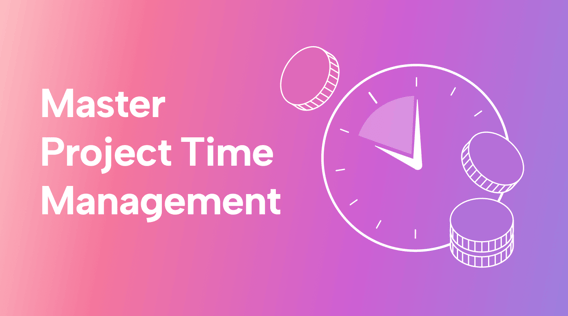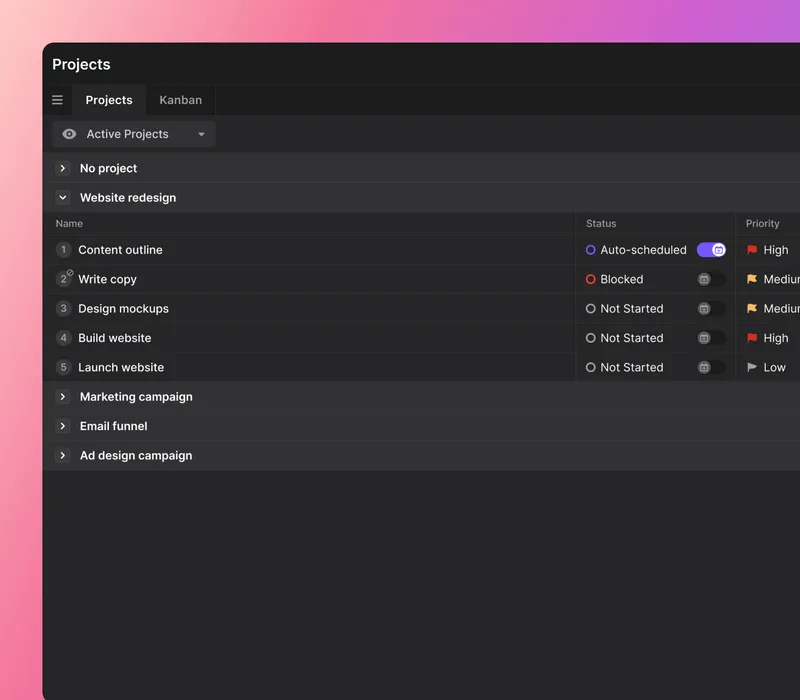If you work in project management or product development, you know how crucial it is to manage time effectively. But what's meant by project time management, and why is it so important?
In this post, we’ll dive into everything you need to know to master project time management, including:
- What is project time management?
- Why is time management essential?
- The benefits of project time management
- Best practices for project time management
- Actionable strategies to implement effective project time management
Finally, you’ll also explore how Motion can make project time management easier and more effective. By the end of this post, you’ll have a solid understanding of project time management and the tools you need to make it work for you.
Let's get started.
What is project time management?
Project time management is the process of planning, scheduling, and controlling project activities to achieve project objectives on time.
Effective project time management is essential for project success, enabling you to deliver projects on time, within budget, and with the necessary quality.
Real-world examples include completing a construction project ahead of schedule. Other scenarios involve launching a new product on time and meeting a critical deadline for a client.
The key elements of project time management include:
- Defining project activities: involves identifying all required project goals and objectives.
- Sequencing the activities: determines the order the activities must follow.
- Estimating activity resources involves determining the required type and quantity of resources.
- Developing a project schedule: involves establishing a timeline for completing project activities.
- Finally, monitoring and controlling project activities: involves tracking progress, identifying potential issues, and making necessary adjustments.
Why is time management essential in project management?
Effective time management is critical in project management because it helps ensure that projects stay within scope and satisfy stakeholders.
Time management enables project managers to prioritize tasks and allocate resources efficiently. And it helps identify and mitigate risks that could cause delays or cost overruns.
In contrast, poor time management can have serious consequences, including:
- Missed deadlines
- Increased costs
- Unhappy stakeholders
- Damaged reputation
Time management is also an essential part of the broader project management framework, which includes planning, executing, monitoring, and controlling.
Benefits of time management in a project
Time is one of the most priceless resources in project management. Every minute wasted can lead to delays, increased costs, and reduced quality.
On the other hand, effective time management can unlock many benefits beyond completing a project on time.
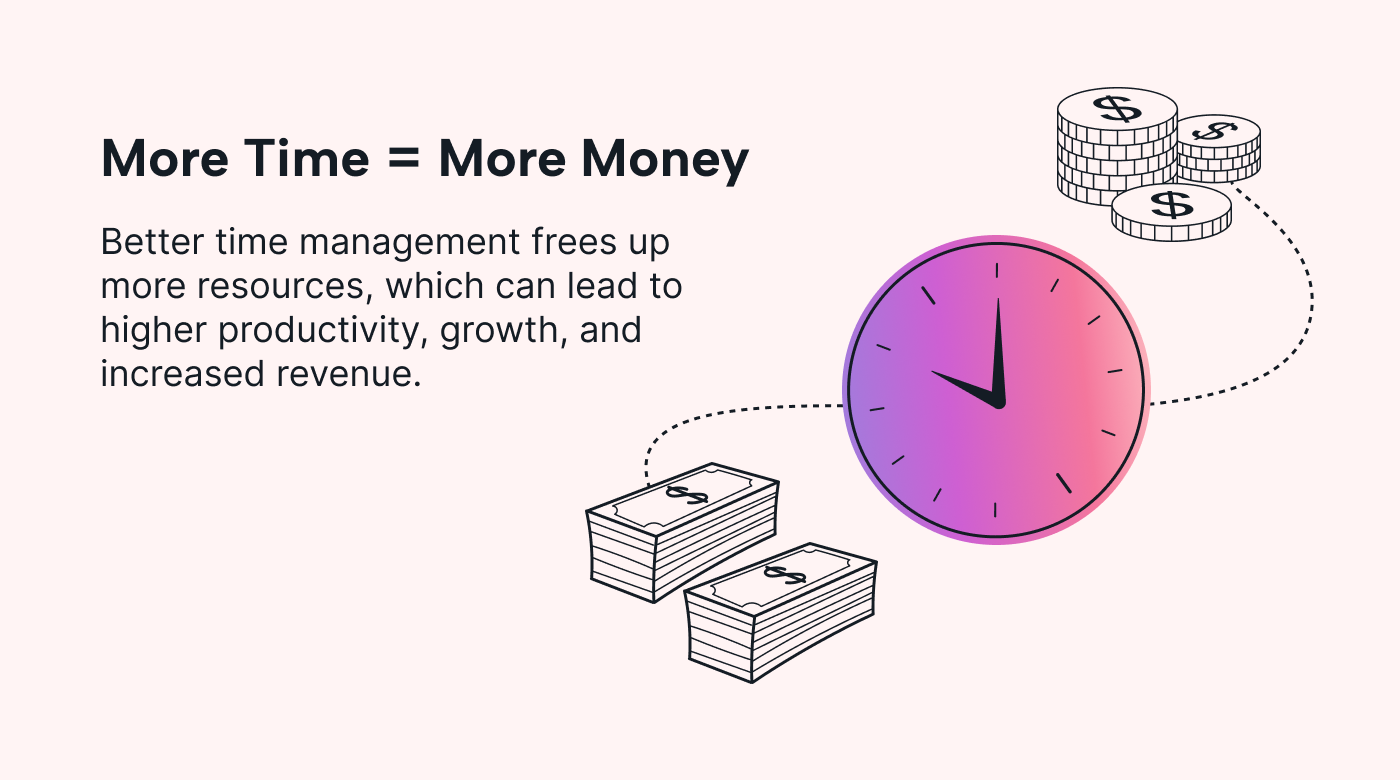 |
Effective time management can increase productivity by reducing the time spent on non-essential tasks. In addition, it can improve work quality and free up resources, resulting in higher customer satisfaction, improved employee morale, and more opportunities.
Furthermore, reducing the time required to complete a project can reduce costs and associated risks, leading to higher profitability. Time management techniques can also improve cash flow and competitive position.
For example, a construction company can use it to identify bottlenecks and adjust its plans. This approach leads to more efficient use of resources, lower costs, and faster completion times, which translates into higher ROI and more business opportunities.
Project time management best practices
Implementing best practices for project time management can help you reap the benefits we just discussed.
Here are some best practices for effective project time management:
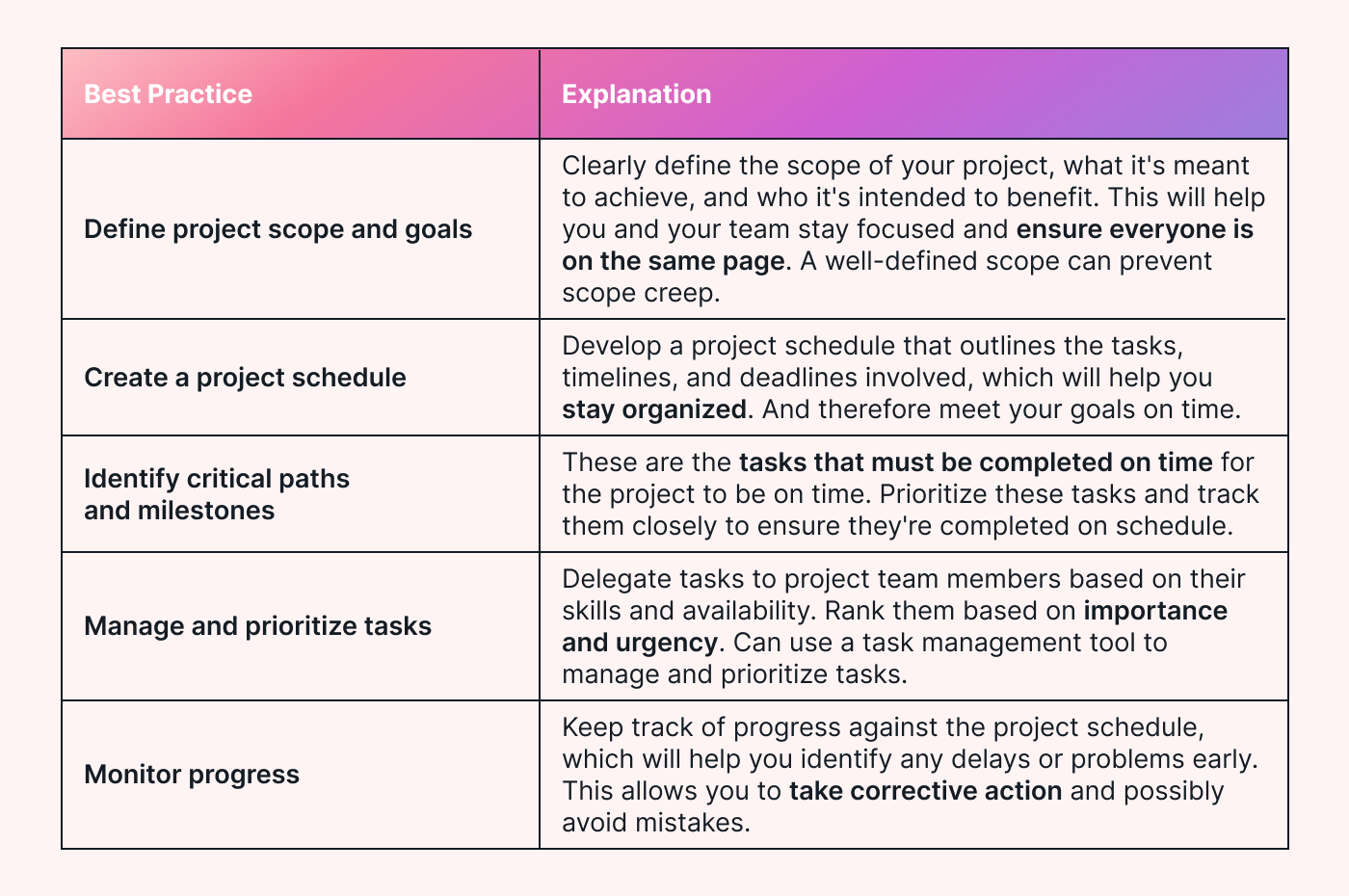 |
The practices mentioned above aren’t a one-time process but an ongoing one that requires continuous monitoring and adjustment.
Other helpful tips to keep in mind regarding the principles include:
- Set realistic deadlines: by considering any latent delays or unexpected issues that may arise.
- Communicate clearly: about project goals, timelines, and expectations to team members, stakeholders, and clients. It helps keep everyone on the same page and avoids misunderstandings.
- Prioritize teamwork: and collaboration among project team members. Which will help ensure that everyone is working together towards a common goal.
- Use project management software and tools: to automate processes, streamline workflows, and increase efficiency.
- Analyze and learn from past projects: to identify areas where you can improve your project time management processes. Learn from errors and successes to continuously improve.
Strategies for mastering project time management
Now that we have reviewed the principles, we'll discuss some practical strategies. These can help you improve your project time management skills and productivity.
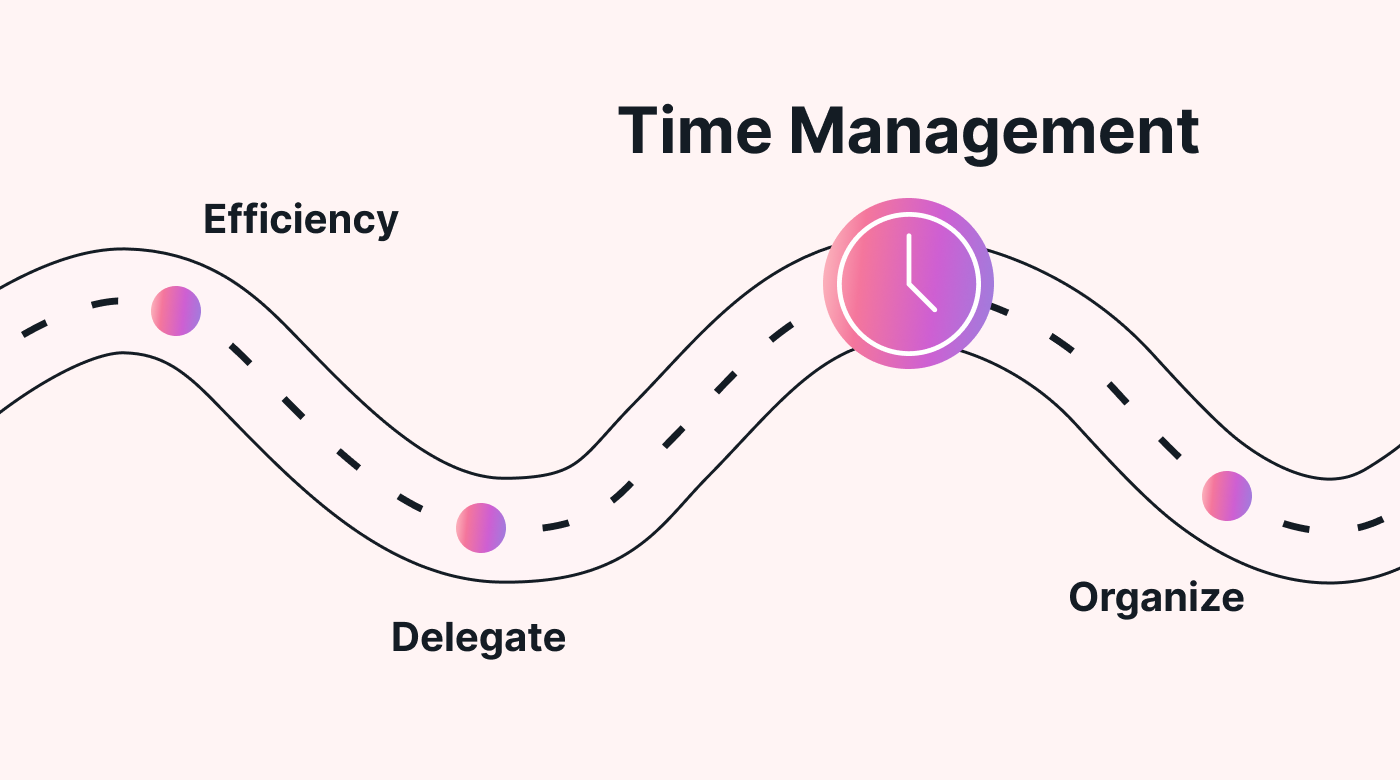 |
Let’s take a look at these strategies one by one.
Adopt Agile methodologies for appropriate projects
For projects that lend themselves to delivering in small bites, Agile methodologies emphasize collaboration, flexibility, and adaptability. They are making managing complex projects with multiple stakeholders easier.
Scrum, Kanban, and Lean are popular Agile frameworks that can help you manage your project more efficiently. These methods ensure the to-do list is always optimized throughout the project life cycle.
Use a project management tool
Project management tools like Motion can help you automate project management processes. It does this by streamlining workflows and improving communication among team members.
These tools provide a centralized platform for tracking tasks, deadlines, and progress, making it easier to stay on top of your project.
Practice time-blocking
Time-blocking is a great way to manage your day effectively.
Start by breaking down your workday into blocks dedicated to specific tasks or projects. This helps you avoid distractions and stay focused on the most critical tasks.
For example, if you're working on a report, block out two hours to focus solely on that task in the morning. During that period, turn off your phone and avoid checking emails.
You can pass this technique on to your team and encourage them to follow a time-blocking schedule.
Delegate tasks effectively
Delegating tasks to team members can help you save time and increase efficiency. But it requires careful planning and communication.
When assigning tasks to team members, base it on their skills and availability. And make sure to provide clear instructions and deadlines.
Follow up regularly to ensure that tasks get done on schedule.
Use the Pomodoro Technique
The Pomodoro Technique is a popular time management technique that involves breaking your work into 25-minute intervals, followed by a five-minute break.
This method helps increase productivity and focus by giving your brain time to rest and recharge.
To use this technique:
- Set a timer for 25 minutes and work on your task until the timer goes off.
- Take a five-minute break to rest your mind and recharge.
- After four Pomodoros, take a longer break of 15 to 30 minutes.
The Pomodoro Technique can help you stay centered and productive while preventing burnout.
How Motion makes project time management easier
Motion can help streamline project time management by allowing you to visualize your workflow and track progress in real-time.
Motion is a project management tool with several features. These features simplify project management, including task tracking, time tracking, and team collaboration.
One of the main benefits of Motion is its ability to help you visualize your workflow. With Motion, you can see your project's tasks and deadlines in one place, making it easier to track progress and make changes as needed.
Additionally, by using Motion to track your team's progress, you can identify tasks taking longer than expected. This helps ensure that your team works on the most critical tasks during the entire project.
Motion can automatically adjust yours and your team’s schedules to tee up the highest priority tasks, thus adjusting schedules so you and your team don’t spend time doing that.
Another benefit of Motion is its ability to automate repetitive tasks. By reducing manual labor, Motion can free up your project team's energy and time to focus on more high-level strategic work. This can help increase productivity and improve the quality of your work.
Master project time management with Motion
Effective project time management is crucial for the success of any project. Implementing best practices and strategies like those mentioned here ensures your project stays on track and succeeds.
You can use tools like time-blocking, delegation, and the Pomodoro Technique to improve your project time management skills. To take it up a notch, you may also want to check out Motion. Motion is an all-in-one productivity tool that streamlines project management processes and increases efficiency.
Remember, project time management is an ongoing process. It requires continuous improvement and adaptation.
With the right mentality and tools, you can succeed in your projects and reach your goals.
Try Motion for free.

